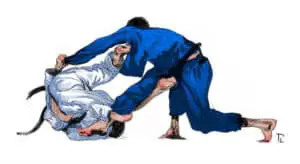You have just woken up and you feel like you have been hit by a train. You weren’t drinking last night, heck you didn’t even go to bed late. You were however, training BJJ. As fun as BJJ is it is an intense sport that can cause your body to be seriously sore. Now you want to know why you are so sore? And if it is ok to train BJJ tonight? Strap in, we will answer all your BJJ soreness related queries.
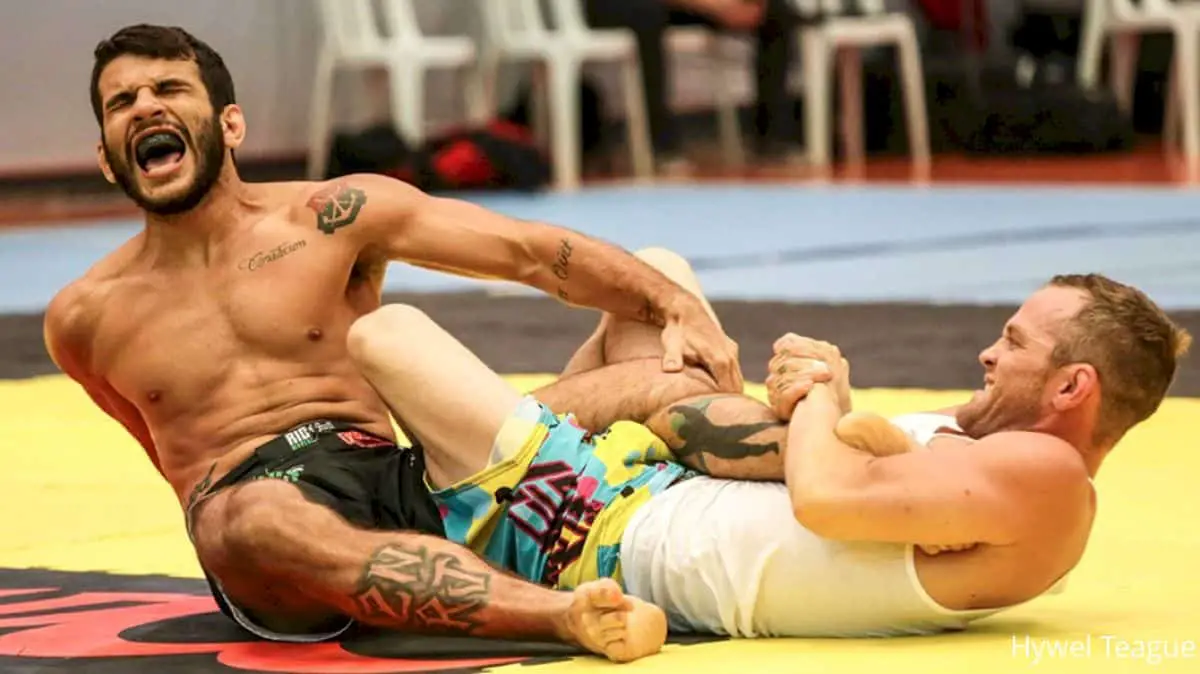
Can you train BJJ when sore? Yes, if you are only a little sore you can still train BJJ at your normal intensity. If you are feeling medium levels of soreness you can still train BJJ but consider training lightly and maybe skip rolling. If you are very sore it is better not to train BJJ and let your muscles recover otherwise you risk injury.
Are You Overtraining BJJ?
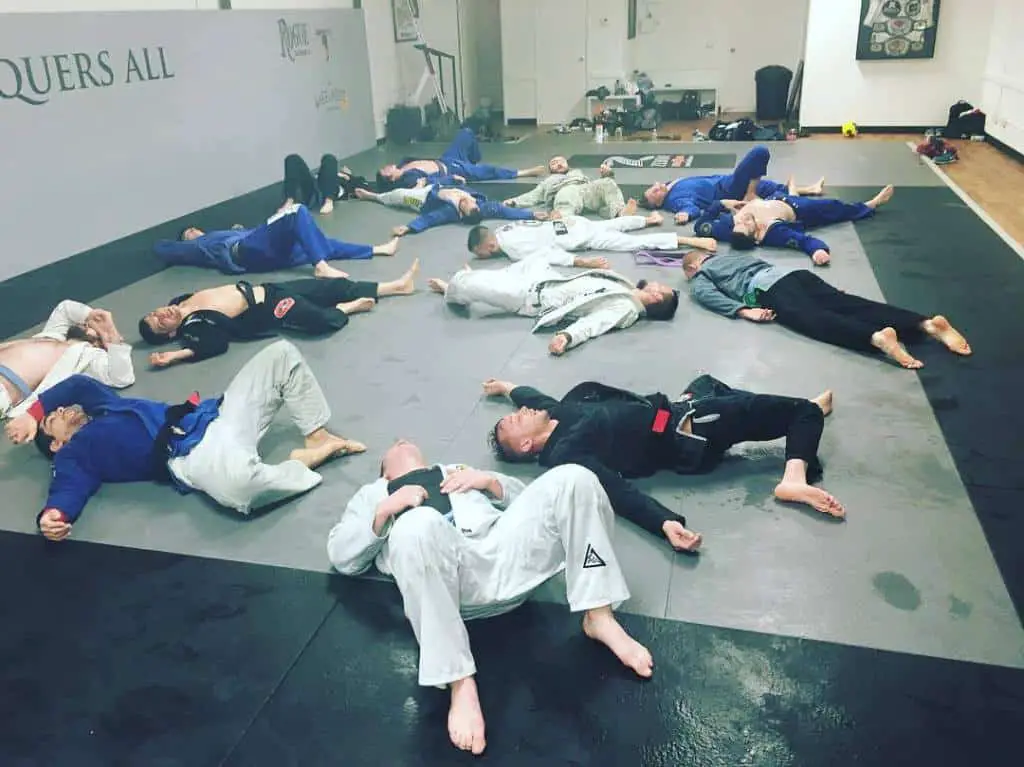
If you are sore after every BJJ session and you have been training for more than 2 months then you are likely overtraining. It is normal to experience regular soreness if you are brand new because your body is not use to being push, pulled, grabbed and thrown around.
It takes time for your body to adapt to that kind of abuse. Luckily, your body is highly adaptive and will soon figure it out it needs to change to accommodate your BJJ requests. This adaption usually takes place after 1-2 months.
If you are still feeling ridiculous amounts soreness after training for more than 2 months then you need to reduce your training. Your body has not been able to adapt to the stress you are placing on it. If you keep up with your current training schedule you run the risk of injuring yourself. So it is better to take a small break now rather than a forced longer break when you end up hurting yourself.
Why Do I Get Sore After BJJ?
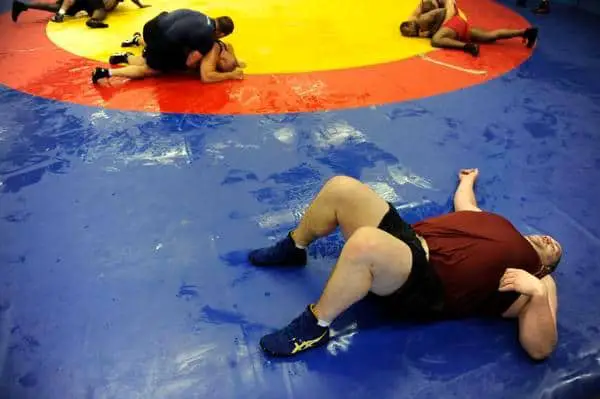
BJJ places a lot of stress on the body and if you are new to BJJ your body will not be accustomed to this stress. This intense new stress causes microscopic damage to the muscle fibres, which manifests as muscle soreness and or stiffness, known as delayed onset muscle soreness (DOMS).
Many people mistakenly believe DOMS is caused by lactic acid however lactic acid is not involved in DOMS.
How To Prevent Soreness From BJJ?
To prevent soreness from BJJ you should take cold showers (30 seconds on, 30 seconds off for 3-5 minutes), eat a healthy high protein diet consisting of fish, chicken, red meat, fruit and vegetables, sleep for at least 8 hours a day and regularly stretch.
Cold Showers
Based on scientific studies cold water immersion has not shown to be effective in reducing delayed onset muscle soreness (DOMS). Glasgow et al. (2014) found altering the treatment duration, water temperature or dosage of post exercise water immersion had minimal effect on outcomes relating to DOMS. Sellwood et al. (2007) found no significant differences were observed between groups with regard to changes in most pain parameters, tenderness, isometric strength, swelling, hop‐for‐distance or serum CK over time. The protocol of ice‐water immersion used in this study was ineffectual in minimizing markers of DOMS in untrained individuals.
However, from personal experience after a cold shower my body feels less sore and I feel a greater sense of pain free mobility. Even if it is a placebo I still find great benefit in taking cold showers. Try the Wim Hoff method where he recommends 5 rounds of 30 seconds alternating between hot and cold water.
Eat A Healthy High Protein Diet
If your diet is poor your recovery is going to be poor and you will experience prolonged soreness. To maximize your recovery and reduce your soreness you need to eat high protein and healthy natural foods. You should aim to eat 1 gram of protein for every 1 pound of your body weight. For example if you weigh 150 pounds you should be hitting 150 grams of protein per day. Your diet should consist of red meat, chicken, fish, eggs, vegetables, rice, pasta and fruit. You stick with that diet and get in the right amount of protein you will won’t be feeling sore for very long.
Sleep For At Least 8 Hours
Sleep is essential if you want your body to recover and perform at its best. When your muscles are getting sore from BJJ your body is letting you know it needs to rest and recover. There is no better recovery than getting a solid 8 hours of blissful sleep. Studies have found that for every two hours an athlete is awake they require at least one hour of sleep to recover. Therefore if you are awake for 16 hours a day you better be getting 8 hours of sleep otherwise your body is not recovering properly and your soreness is going to linger.
Stretch Daily
Stretching can help you increase your mobility while helping reduce your soreness.
Try These 3 Stretches To Reduce Your Soreness And Stiffness From BJJ
1) Butterfly Stretch
Great for reducing stiffness in your groin and hips. Sit on the ground, place your the soles of your feet together so they are touching. Then place your elbows on your knees and attempt to push your knees to the ground. You should feel a strong stretch in your groin and your hips should open up.
2) Lying Half Spinal Twist
Great for reducing stiffness in your spine. Lie on your back with your arms outstretched to your sides. Then lift one of your legs hold it across your body. Take one of your arms and attempt to touch your knee of your lifted leg to the ground. Keep your shoulders on the mat, and turn your head away from your leg. Repeat this for both legs, for 10 to 20 seconds.
3) Neck and Torso Stretch
Great for reducing stiffness in your neck and back. Lie on your back with your arms by your sides. Lift your feet off the floor and attempt to touch your chest with your knees. If you are extra flexible you touch the balls of your feet behind your head. Hold this pose for 30 seconds to a minute before returning your legs to the ground.
Will I Always Be Sore After BJJ?
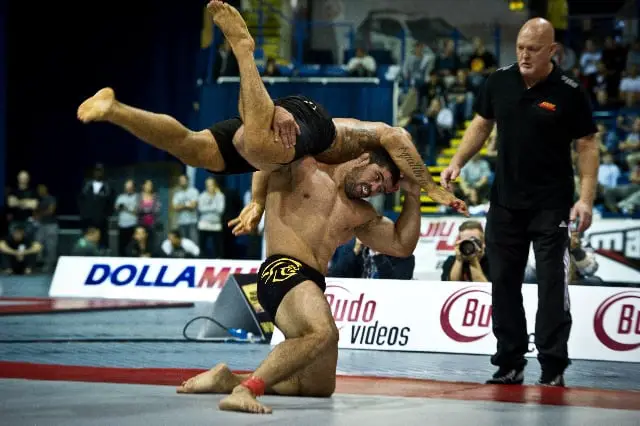
No, you will not always be sore after BJJ. Fortunately, your body will adapt to the rigors of BJJ. Within a couple of months of training your body will harden and your muscles will become accustomed to the new stress you are placing them under. It won’t be long before you experience little to no soreness from a standard BJJ session.
However, if you do choose to ramp up the intensity by increasing your usual number of sparring rounds or rolling harder than usual then you will feel soreness again. This is why it is a good idea to slowly increasing your training volume and intensity over time as this allows your body to adapt more easily reducing your likelihood of experiencing serious soreness.
How To Train BJJ When I Am Sore?
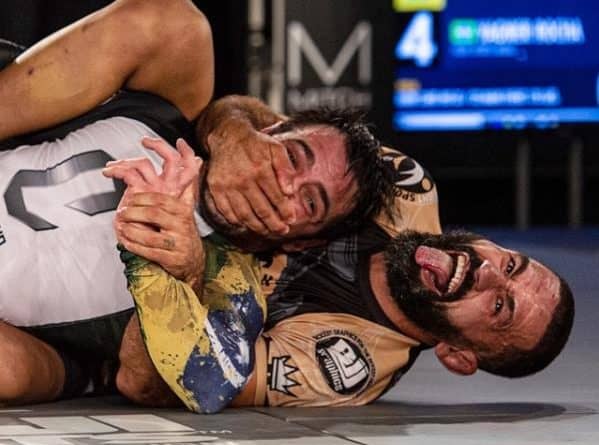
The best way to train BJJ when you are sore is to slow everything down. When you are sore the last thing you want to be doing is hopping around the mat making explosive movements. Instead, take your time and focus on being as efficient with your energy as possible.
Use technique over strength. When your back, legs and arm ache you do not want to be trying to bench press your training partners from mount or trying to bicep curl your way out of an armbar. Save your muscles and focus on using technique and performing BJJ as it was designed to be performed, with as little focus on strength as possible.
If you are very sore it may be best to just stick to drilling. During drilling you can control the pace and you don’t have to worry about your training partner offering resistance or going wild and trying to tear your head. It may be the smart option to skip rolling and leave it until your muscles recover especially seeing as nearly all injuries occur during the rolling portion of the class.
Conclusion
If you are only experiencing medium to small amounts of soreness then don’t worry you do not need to skip your BJJ session. If you are experiencing a large amount of soreness then consider missing your next BJJ class so you can give your body some time to heal. If you are hellbent on training then remember to take it easy and avoid rolling. If you want to reduce your soreness and help your body recover then you should should take cold showers (30 seconds on, 30 seconds off for 3-5 minutes), eat a healthy high protein diet consisting of fish, chicken, red meat, fruit and vegetables, sleep for at least 8 hours a day and regularly stretch.
